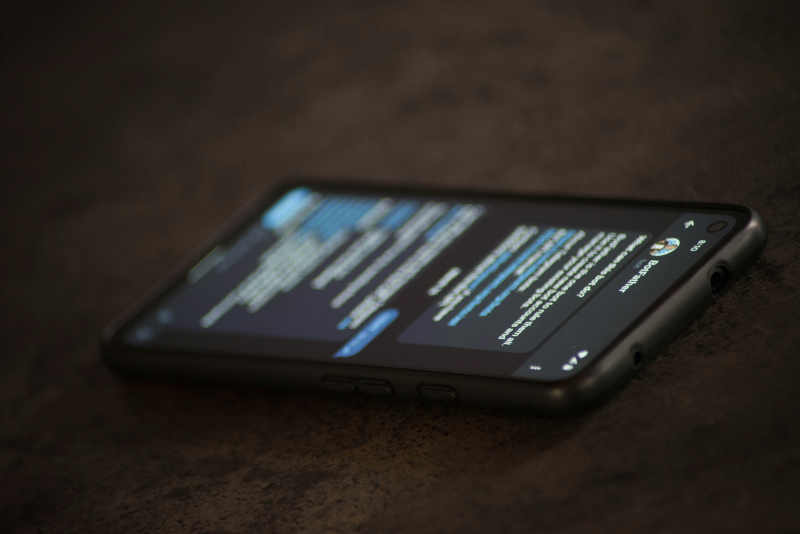Agreeing under coercion is not consent: how the State contributes to subjugate us to Big Tech
For many years, people have been conditioned to check the box or click the button, without reading, stating that they agree with the “terms of service” and “privacy policy” of every online service they want to use, without reflecting for a second on the consequences. The devil is in the details, as many times, in the fine print, personal data usage practices are hidden, which, if read, the person would probably not agree with. For example, the sharing of personal data with partners for marketing purposes and other unspecified purposes.
Most often the person does not have the option to disagree, for various reasons. For example, due to social pressure, considering that their entire social circle uses the same messaging app or social network. Or even because the companies with which the person needs to interact only use a certain messaging app, without which it becomes impossible to buy a good or service. In these cases, the person may try to look for a competitor that uses a different app, but this is not always possible, as most of the time all companies use the same app, always from the few companies called “Big Tech” that hold a monopoly or oligopoly in the sector.
In the case of Brazil, for example, a de facto monopoly of WhatsApp has been established, especially since the company Meta, owner of the app, began paying mobile internet operators for the privilege of excluding only its apps from the mobile internet plan artificial data rate limitations, to the detriment of other apps. In Brazil, mobile internet plans have data traffic volume limitations. If a person uses any other messaging app, such as Signal or Element, they will quickly exhaust their limit. On the other hand, if they use WhatsApp, they won’t spend anything. That’s the so-called zero-rating. It is exactly this market imbalance that has led to the dominance of this app in Brazil, where almost 100% of people use it. This creates an expectation in social and commercial relationships that everyone needs to use it.
This market distortion was evaluated between 2015 and 2018 by the Conselho Administrativo de Defesa Econômica – CADE, a government agency responsible for defending competition, which decided to dismiss the case after receiving a response by Anatel, the agency responsible for telecommunications, with an argumentation contrary to any logic, that the exemption from traffic limits for Meta would expand competition and stimulate innovation. Ten years later, we know well what the result was. This is a story that I shall tell in detail in another text. I will show then who the parties involved were, the arguments and predictions they made, and the contrast with what actually happened in the following years. I have already told part of that story to Prof. Sérgio Amadeu in episode 92 of the Tecnopolítica podcast. It is an undisputed fact that, in these years, the breadth of situations that force us to accept against our will whatever “Big Tech” wants to impose on us have increased exponentially.

The worst kind of trap, however, is when the State itself establishes obligations or imposes conditions for the receipt of rights, unless the citizen agrees to use a specific app or social network from the “Big Tech”. Today we live in the tragic situation where all government apps are closed-source, meaning that the source code cannot be inspected to verify what they are actually doing and what data they are collecting on your device. Carteira de Identidade Nacional – CIN, Carteira Digital de Trânsito – CDT (formerly known as CNH Digital) and the e-Título are just a few examples of government apps, produced using public resources from the treasury, but whose source code is not accessible to the public that funded their development. To learn more about why the public should have the right to access and use the source code of the software they paid for, check out the Public Money, Public Code campaign by the Free Software Foundation Europe – FSFE. In contrast to Brazil, many government apps in European Union countries, such as Germany, are open-source.
The lack of access to the source code is not the only problem with these government apps. Perhaps even more serious is the fact that these apps are only available in the proprietary stores of Google and Apple. In addition to the issue of collecting data from all Brazilian citizens by these foreign companies, which is in itself already serious, there are also legal problems and a democratic problem. Legally, a contract cannot be established under coercion or threat. Such a contract is not legally enforceable. Furthermore, the fact that citizens cannot comment or influence the terms of service and privacy policies becomes a democratic problem, if everyone is forced by the State in some way or another to accept them.
What the State is doing with this practice is privatizing the law in an anti-democratic process. The citizen has to obey and has no participation in defining the text that they are supposedly legally bound to. Who determines what appears in these terms of service and privacy policies are exclusively Alphabet, the owner of Google, and Apple. What they write becomes effectively as if it were law, and there is nothing citizens can do about it, as soon as the State conditions the fulfillment of duties and access to rights to the acceptance of these terms. It is a tyranny of the Big Tech, with the approval of the governments of countries that adopt the practice of establishing closed-source apps in proprietary stores of foreign oligopolies as the only means of exercising citizenship.
In other times, tyranny would lead to popular revolt against the tyrant. In the present case, this does not happen, in large part, because people have been conditioned over the years by these companies in the Silicon Valley oligopoly to accept without reading and paying attention to the obligations and permissions “agreed” to in the terms of service. With this, they have managed to create a sense of resignation, where people think that everything is very bad, but believe that there is nothing anyone can do about it.

This is not true. There is a lot that we can do. It’s not easy, but there are several attitudes that we can take. For starters, we can demand from politicians and vote for those who commit to public policies that promote the creation of a national digital infrastructure. For example, that they defend the idea that if any software is developed with public resources, it belongs to the public and should become free and open source software, as advocated by the Public Money, Public Code campaign by the FSFE. We can also demand that they value the protection of personal data and digital sovereignty, promoting the development of a national digital infrastructure, both in terms of hardware (sovereign cloud), and in terms of software.
In addition to this, it is necessary to develop and retain the talents formed in Brazilian universities, so that technology professionals remain in Brazil, instead of going to work for foreign companies, and so that the country has control over the technology. To achieve this, it is necessary for universities to have adequate funding for research and education in the area of technology, in the opposite direction of the cuts made in recent years in the name of fiscal adjustment. Creating tax incentives for Brazilian companies in the sector to develop, compensating for the fiscal effect with higher taxes for foreign companies that see the country as digital colonies for data extraction.
On the other hand, beyond public policy issues, we can also take various personal attitudes. Using free app stores, such as F-Droid on Android-based mobile devices. Removing proprietary apps that collect your data, including those that come pre-installed on the system from the factory – the so-called “bloatware”. There are guides and tutorials on the internet that demonstrate step by step how to do this. The xdaforums.com forum usually has personalized guides for each mobile device model.

Every time you sign up for a new service, carefully evaluate what personal data is being requested. Like everyone else, I don’t have time to read in minute detail all the terms of service of all the platforms, sites, services, and apps that I need to use. That’s why it’s important to search for the name of the service, platform, or app on ToS;DR, see its privacy rating, and the main negative (or positive) points of the summary of its terms of service. To understand what it is and how to use the tool, please read the text I wrote on the subject.
In the social and commercial sphere, always prefer free apps for messaging, map navigation, and other daily needs. Introduce the people you know to the apps and solutions you use, so they can see that they not only reduce our exposure to personal data and submission to foreign “Big Tech” companies, but also that these solutions are viable, convenient, and easy to use in daily life.